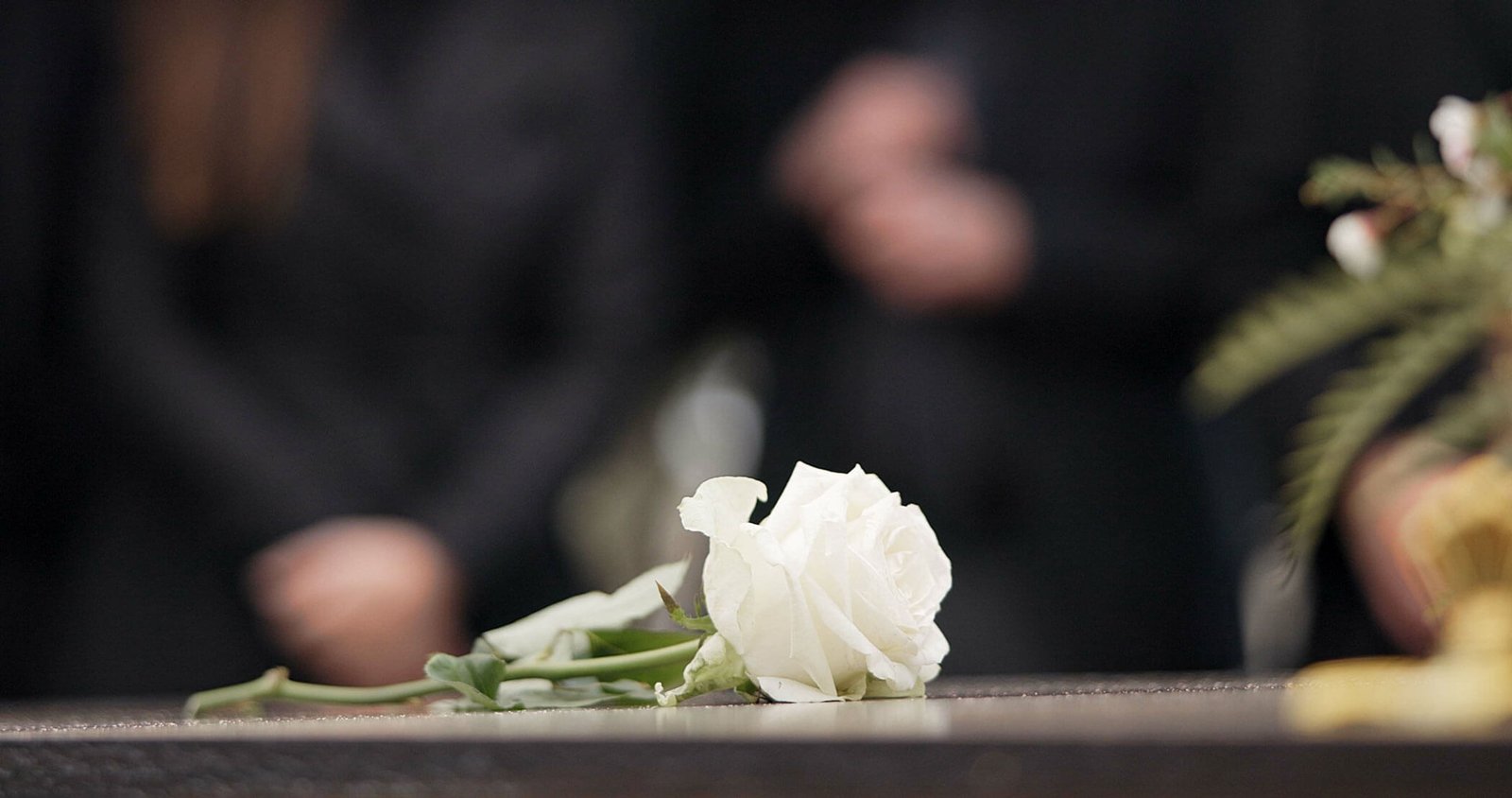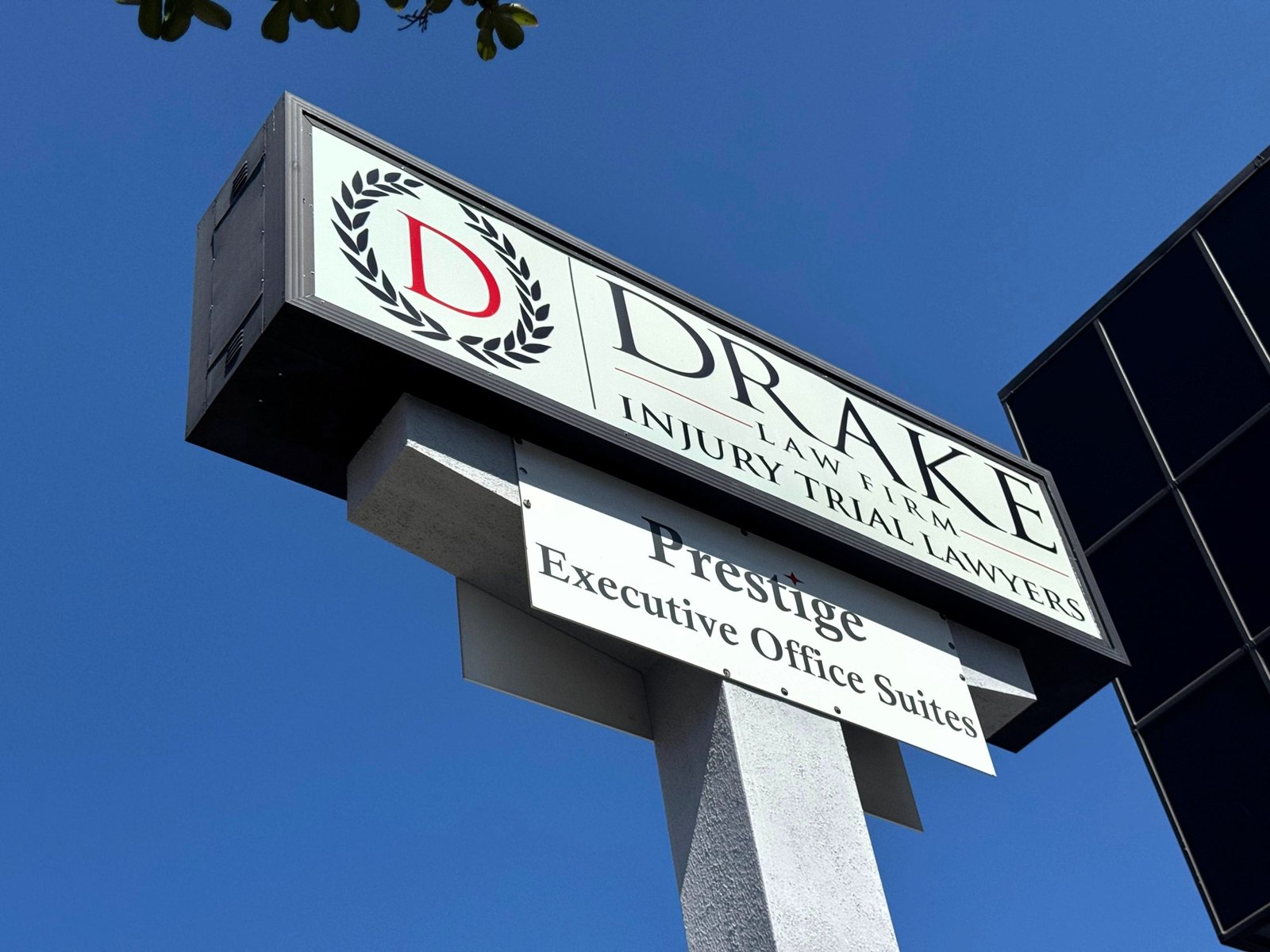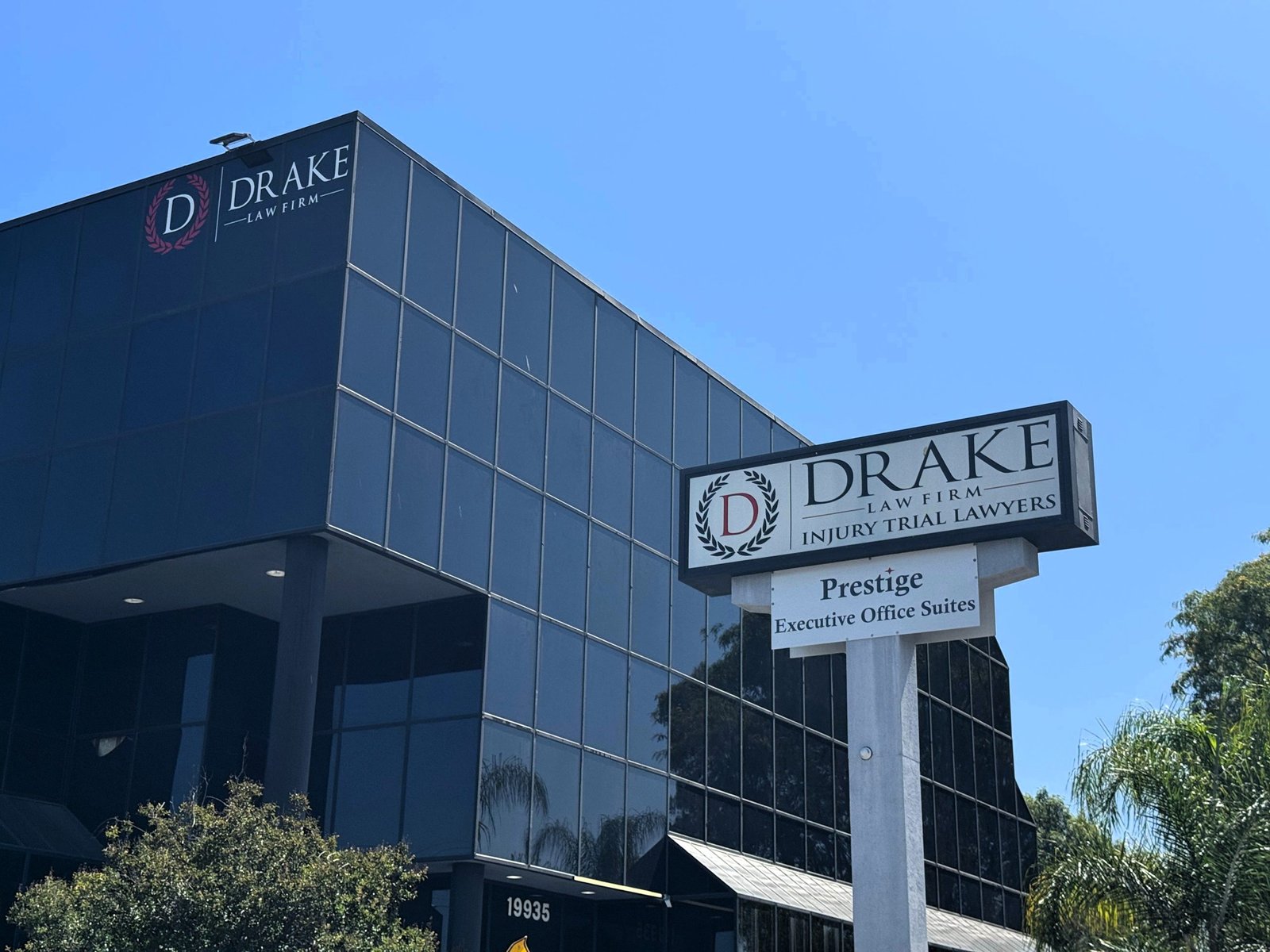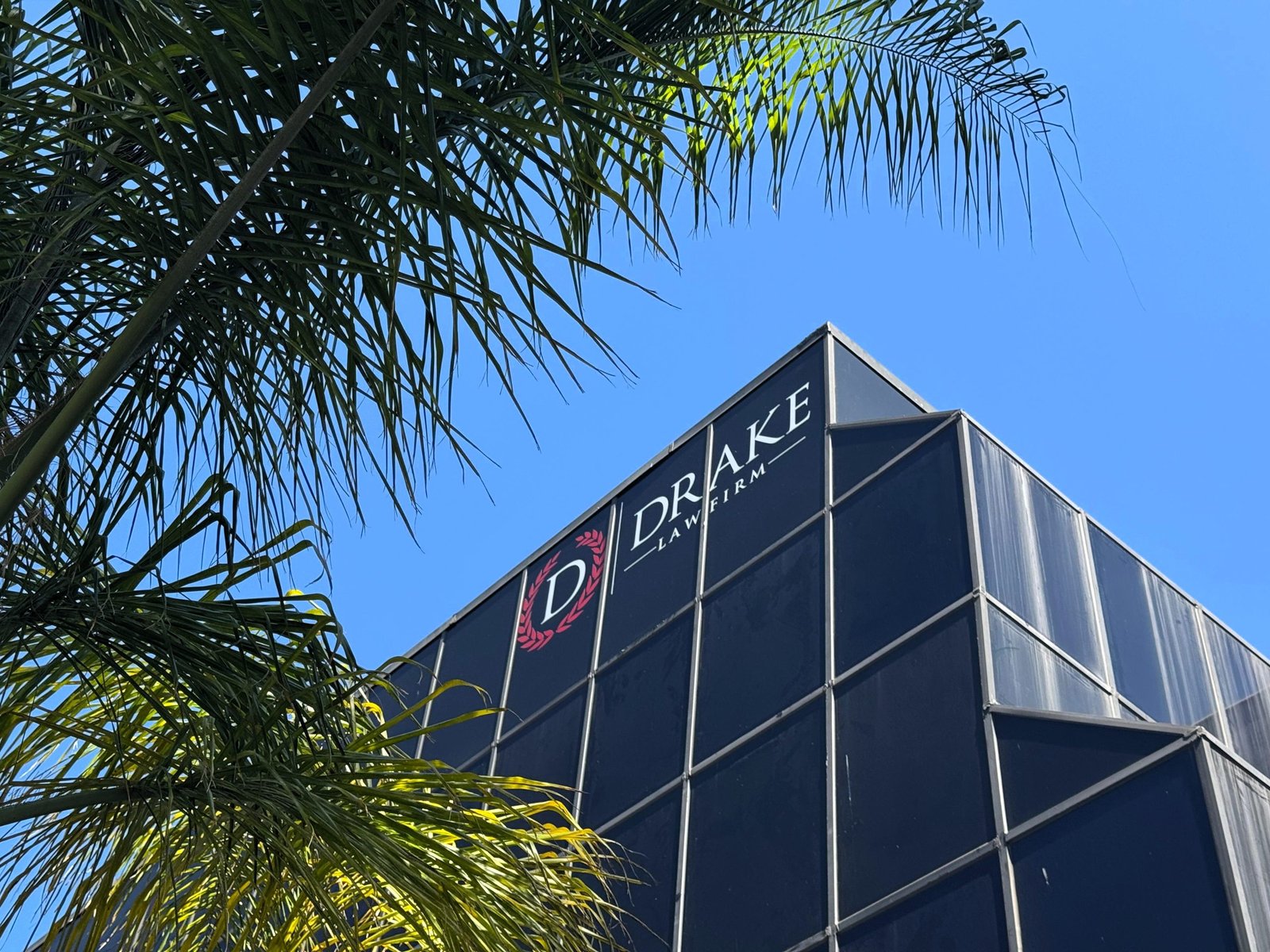
Wrongful
Death

If you have lost a loved one due to the negligence or wrongful acts of another, you may have grounds to take legal action. In California, certain surviving family members can file civil lawsuits to hold at-fault parties accountable for their careless acts, and financially responsible for the damages families suffered.
Drake Law Firm: We Fight for Families
- We have recovered more than $150 million in compensation for our clients.
- We focus exclusively on representing victims of personal injury and wrongful death.
- Our attorneys, paralegals, and support staff draw from over 100 years of combined experience.
- We care about our clients and make personal attention and client satisfaction our priorities.
How Does a Wrongful Death
Lawsuit Work in California?
- Fatal car accidents
- Commercial truck accidents
- Dangerous property conditions (premises liability)
- Preventable explosions or fires
- Construction accidents, including falls or falling objects
- Fatal bicycle or pedestrian accidents

- A legal duty between the defendant and the victim, such as the duty of care a motorist owes to others around them, a landowner’s duty to take reasonable measures in addressing potential hazards on their property, or a contractor’s duty to safely operate heavy equipment on a construction site.
- A breach of duty, or the defendant’s failure to meet their duty of care. Typically, this means proving negligence. A motorist, for example, may breach their legal duty to safely operate their vehicle by driving distracted or driving drunk.
- Causation, which means proving that a defendant’s negligent or wrongful act more likely than not caused the victim’s death.
- Damages, which requires victims to establish that they suffered actual physical, financial, and emotional losses.
Who Can File A Wrongful Death
Lawsuit in California?

- A surviving spouse
- A surviving domestic partner
- Living children
- Grandchildren, if the victim’s children are deceased
- Minor children who were dependent on the decedent (i.e. stepchildren)
- Other surviving relatives who would be entitled to the estate
What Damages Can Be Recovered?
Wrongful death lawsuits are meant to compensate families for the economic and non-economic damages arising from their loved one’s death.
Damages can vary from case to case, but generally include losses such as:
- Lost emotional support and companionship
- Lost financial support
- Funeral and burial expenses
- Lost consortium
- Lost protection, affection, and guidance
- A decedent’s pain and suffering

How Long Do I Have to File a
Wrongful Death Lawsuit?
Call for a FREE Consultation
still have questions?
Q: What is a breach of duty in legal terms?
A: A breach of duty occurs when a person or entity fails to meet the standard of care required by law, resulting in harm to another person. In legal terms, a "duty of care" refers to the obligation to act reasonably and avoid causing harm to others. For example, drivers have a duty to follow traffic laws and drive safely to prevent accidents.
Q: What are some examples of a breach of duty?
A: Examples of breaches of duty include:
- Drunk Driving: A driver has a duty not to operate a vehicle while under the influence of alcohol or drugs. Driving impaired breaches this duty and endangers others on the road.
- Medical Negligence: A healthcare provider fails to diagnose a condition or makes a surgical error, breaching their duty to provide competent care.
- Slip and Fall Incidents: A property owner neglects to repair or warn about a hazardous condition, such as a wet floor or broken stairs.
- Truck Accidents: A trucking company fails to maintain its vehicles properly, leading to mechanical failures and accidents.
- Product Liability: A manufacturer releases a defective product that causes injury, breaching its duty to produce safe goods.
Q: How do you prove a breach of duty in a personal injury case?
A: Proving a breach of duty requires demonstrating:
- Duty of Care: The defendant owed a duty of care to the plaintiff.
- Breach of Duty: The defendant failed to meet the standard of care expected under the circumstances.
- Causation: The breach of duty directly caused the plaintiff’s injuries.
- Damages: The plaintiff suffered measurable harm, such as medical expenses, lost wages, or pain and suffering.
An experienced attorney, like those at Drake Law Firm, can help gather evidence, such as eyewitness accounts, expert testimony, and documentation, to establish these elements.
Q: What should I do if I believe someone breached their duty of care and caused my injury?
A: If you suspect a breach of duty led to your injury, it’s essential to take the following steps:
- Seek immediate medical attention to document your injuries.
- Collect evidence, such as photos, witness contact information, and any relevant records.
- Consult an experienced personal injury attorney, like those at Drake Law Firm, to evaluate your case and guide you through the legal process.
Q: How can Drake Law Firm help in cases involving a breach of duty?
A: At Drake Law Firm, our experienced attorneys specialize in personal injury cases involving breaches of duty. We:
- Investigate your case to establish the duty of care and how it was breached.
- Gather evidence and consult with experts to build a strong claim.
- Handle negotiations with insurance companies to ensure fair compensation.
- Represent you in court if necessary to secure the justice and recovery you deserve.
Contact Drake Law Firm today for a free consultation and let us help you hold the responsible party accountable.
What is the Statute of Limitations for Wrongful Death?
A: In California, the statute of limitations for wrongful death cases is generally two years from the date of the deceased’s passing, as stipulated by California Code of Civil Procedure Section 335.1. However, specific circumstances, such as claims against government entities, may alter this timeline. Consulting with an experienced wrongful death attorney early on is essential to ensure you file within the appropriate timeframe.
What Are the Elements of a Wrongful Death Claim?
A: In California, a wrongful death claim must establish three primary elements: (1) the defendant’s actions caused the death, (2) the defendant acted negligently, recklessly, or intentionally, and (3) the surviving family members suffered damages as a result. Meeting these requirements can often involve complex legal arguments and evidence, which a skilled wrongful death attorney can help you navigate.
What Type of Evidence is Needed to Prove a Wrongful Death Claim?
A: Building a strong wrongful death case requires gathering a variety of evidence, such as medical records, autopsy reports, police reports, and witness statements. Additional documents, like financial records, may also be required to demonstrate the economic impact of the loss. Your attorney will guide you in collecting this essential evidence to support your case effectively.
How Long Does a Wrongful Death Case Take?
A: The duration of a wrongful death case varies depending on factors like the complexity of the case, the availability of evidence, and whether the case is settled out of court or goes to trial. Simple cases may resolve in a few months, while complex ones, especially those involving contested liability or high damages, may take a year or longer.
What is the Process for Filing a Wrongful Death Suit?
A: Filing a wrongful death suit generally begins with the submission of a complaint in court. From there, the case moves through a discovery phase, where both sides gather and exchange evidence. Settlement discussions or mediation may follow, but if a resolution isn’t reached, the case will proceed to trial. Throughout this process, an experienced attorney is vital in managing deadlines, filings, and legal strategy.
What Are the Costs Associated with Filing a Wrongful Death Suit?
A: The costs of filing a wrongful death suit typically include filing fees, court costs, attorney fees, and expenses for expert witnesses or investigators. However, at Drake Law Firm, we handle wrongful death cases on a contingency fee basis, meaning we only receive payment if we successfully recover compensation for you, minimizing your financial burden during an already difficult time.
What is the Role of a Wrongful Death Attorney?
A: A wrongful death attorney provides vital support throughout the legal process, helping you understand your rights, gathering evidence, negotiating with opposing parties, and, if necessary, representing you in court. At Drake Law Firm, our attorneys bring deep experience and dedication to each case, working to ensure you receive the compensation and justice your family deserves.
How Do I Know if Drake Law Firm is the Right Firm for My Case?
A: Choosing the right attorney for a wrongful death case is essential. At Drake Law Firm, our team offers years of experience in wrongful death law and a strong track record of successful outcomes. We offer a free consultation to discuss your case specifics, answer your questions, and determine if our firm is a good fit for you.
Does Drake Law Firm Take Wrongful Death Cases on a Contingency Basis?
A: Yes, we handle wrongful death cases on a contingency basis, meaning you only pay if we secure compensation on your behalf. This approach ensures you receive skilled legal representation without financial strain during a challenging time.
What is the Process for Obtaining Compensation in a Wrongful Death Case?
A: Compensation in a wrongful death case can be obtained through either a settlement or a trial verdict. In a settlement, the defendant agrees to a specified payment amount. If the case goes to trial, the court will render a verdict that may award damages. In either scenario, Drake Law Firm is dedicated to pursuing the maximum compensation possible to help support your family’s future.
What is litigation?
A: Litigation is the process of taking a legal dispute to court in order to have it resolved. It involves formal legal proceedings where parties present their arguments and evidence before a judge or jury. This method is often utilized when parties cannot reach a resolution through negotiation or alternative dispute resolution methods such as mediation or arbitration. At Drake Law Firm, we guide our clients through every step of the litigation process, ensuring their rights and interests are effectively represented in court.
What is the process of litigation?
A: The litigation process typically includes several key stages:
- Filing a Complaint: The process begins when one party (the plaintiff) files a formal complaint against another party (the defendant), outlining the basis of the dispute.
- Service of Process: The defendant is formally notified of the lawsuit through the delivery of legal documents.
- Answer and Pleadings: The defendant responds to the complaint by filing an answer, and both parties may file additional pleadings to clarify their positions.
- Discovery: Both parties exchange information and evidence through methods such as depositions, interrogatories, and document requests.
- Pre-Trial Motions: Parties may file motions to resolve procedural issues or even dismiss parts of the case before trial.
- Trial: Both sides present their evidence and arguments to a judge or jury, who then determine the outcome of the case.
- Post-Trial Motions and Appeals: After the trial, parties may file motions for a new trial or appeal the decision if they believe errors were made.Drake Law Firm's experienced attorneys manage each step of the litigation process, ensuring that our clients are well-prepared and effectively represented.
What are the drawbacks of litigation?
A: The litigation process can have several drawbacks:
- Time-Consuming: Litigation can take months or even years to reach a resolution, due to the time required for court scheduling, discovery, and trial preparation.
- Expensive: The costs associated with litigation, including attorney fees, court fees, and costs for expert witnesses, can be substantial.
- Stressful: The adversarial nature of litigation can be emotionally and mentally taxing for the parties involved.
- Public: Unlike arbitration or mediation, litigation is typically a public process, which can expose the parties to unwanted publicity. Despite these drawbacks, Drake Law Firm works diligently to manage the litigation process efficiently and effectively, aiming to minimize the impact on our clients.
When is litigation an effective method of resolving disputes?
A: Litigation can be an effective method of resolving disputes in several scenarios:
- Strong Disagreements: When parties have significant disagreements over the facts or the law, litigation provides a structured process to resolve these disputes.
- High Stakes: In cases involving substantial amounts of money or valuable assets, litigation ensures a thorough examination of the issues.
- Need for a Neutral Decision-Maker: Litigation allows parties to present their case to a neutral judge or jury, ensuring an impartial decision based on the evidence and legal arguments.In complex or high-stakes cases, the litigation process can provide a definitive resolution that alternative methods may not achieve.
What are the advantages of the litigation process?
A: The litigation process offers several advantages:
- Neutral Forum: It provides a forum where a judge or jury can impartially hear and decide the case.
- Fair and Impartial: The process is governed by established legal rules and procedures, ensuring fairness and impartiality.
- Comprehensive Examination: Litigation allows for a detailed examination of the evidence and arguments, ensuring that all relevant information is considered.
- Legal Protections: The formal nature of litigation provides legal protections for the parties involved, helping to ensure a just outcome. Drake Law Firm leverages these advantages to advocate effectively for our clients, striving for fair and favorable outcomes in court.
What is arbitration?
A: Arbitration is a form of alternative dispute resolution (ADR) that offers a faster and more efficient alternative to traditional litigation in the court system. It involves a neutral third party, known as an arbitrator, who hears and resolves disputes between two parties. In personal injury cases handled by Drake Law Firm, arbitration can be an effective way to settle disputes without the lengthy process of going to court. Arbitration proceedings are generally less formal and can be tailored to fit the needs of the parties involved.
What types of disputes are commonly resolved through arbitration?
A: Arbitration is often used in a variety of disputes, including:
- Commercial Disputes: Issues arising from business transactions and contracts.
- Employment Disputes: Conflicts between employers and employees over issues like wrongful termination or discrimination.
- Insurance Claims: Disagreements between policyholders and insurance companies regarding coverage or claims.
- Contract Disputes: Situations where contracts contain arbitration clauses mandating arbitration as the dispute resolution method.For personal injury cases, arbitration can address disputes over compensation, liability, and damages.
What are the benefits of arbitration?
A: The benefits of arbitration include:
- Faster Resolution: Arbitration typically provides a quicker resolution compared to traditional court litigation.
- Efficiency: The process is streamlined, avoiding the prolonged procedures of the court system.
- Expert Arbitrators: Parties can choose an arbitrator with specific expertise relevant to the dispute, ensuring informed decision-making.
- Final and Binding Decision: Arbitration decisions are generally final and binding, providing a definite end to the dispute.
- Confidentiality: Unlike court cases, arbitration proceedings are private, protecting the confidentiality of the parties involved.These benefits make arbitration an attractive option for resolving disputes efficiently and effectively.
What are the disadvantages of arbitration?
A: The disadvantages of arbitration include:
- Lack of Transparency: The private nature of arbitration means proceedings are not open to the public, which can limit transparency.
- Costs: While arbitration can be faster, it can also be expensive due to the need to pay for the arbitrator's services.
- Limited Discovery Rights: Arbitration often involves limited discovery, restricting the ability to gather evidence and build a comprehensive case.
- Limited Appeal Rights: Arbitration decisions are usually final, with limited opportunities for appeal, which can be a disadvantage if the outcome is unfavorable.Understanding these drawbacks is crucial for making an informed decision about whether to pursue arbitration.
Q: What are some common types of damages that can be recovered in a vehicle accident case?
A: In a vehicle accident case, several types of damages can be recovered, including:
- Medical Expenses: Costs for hospital stays, doctor visits, rehabilitation, and other medical services.
- Lost Wages: Compensation for wages lost due to injury, including both past and future earnings.
- Pain and Suffering: Compensation for physical and emotional pain caused by the accident.
- Property Damage: Costs to repair or replace your vehicle or other damaged property.
- Loss of Consortium: Compensation for the impact on relationships with your spouse or family members.
- Punitive Damages: Damages awarded to punish the defendant for egregious conduct, though these are rare.
Q: What is included in medical expenses in a vehicle accident case?
A: Medical expenses in a vehicle accident case can cover a wide range of costs related to your injury, such as:
- Hospital Stays: Charges for time spent in the hospital, including room and board.
- Doctor Visits: Fees for consultations, treatments, and follow-up visits with physicians.
- Rehabilitation: Costs for physical therapy, occupational therapy, and other rehabilitative services.
- Medication: Expenses for prescription and over-the-counter medications required for your recovery.
- Surgical Procedures: Costs for any necessary surgeries resulting from the accident.
- Medical Equipment: Expenses for items such as wheelchairs, crutches, or braces.
Q: What is lost wages in a vehicle accident case?
A: Lost wages refer to the income you have lost due to your inability to work because of your injury. This includes:
- Past Lost Wages: Earnings you have already missed due to the accident.
- Future Lost Wages: Projected income you will lose in the future if you are unable to return to work or must work in a reduced capacity.
- Lost Opportunities: Potential career advancements or promotions missed due to the injury.
Q: What is pain and suffering in a vehicle accident case?
A: Pain and suffering are non-economic damages intended to compensate for the physical and emotional distress caused by the accident. This includes:
- Physical Pain: Ongoing discomfort, pain from injuries, and pain associated with medical treatments.
- Emotional Distress: Anxiety, depression, PTSD, and other emotional impacts resulting from the accident.
- Loss of Enjoyment of Life: Reduced ability to enjoy daily activities, hobbies, and other aspects of life.
Q: What is property damage in a vehicle accident case?
A: Property damage refers to the destruction or damage to your vehicle and other personal property resulting from the accident. Compensation can include:
- Vehicle Repairs: Costs to repair your vehicle to its pre-accident condition.
- Vehicle Replacement: Compensation for the market value of your vehicle if it is deemed a total loss.
- Other Property: Costs to repair or replace other damaged items, such as electronics, clothing, or personal belongings.
Q: What is loss of consortium in a vehicle accident case?
A: Loss of consortium refers to the negative impact on the relationship between the injured person and their spouse or family members. This includes:
- Loss of Companionship: Reduced ability to enjoy the company and affection of your loved one.
- Loss of Support: Diminished emotional and physical support within the family unit.
- Impact on Intimacy: Changes or reductions in marital relations due to the injury.
Q: What are punitive damages in a vehicle accident case?
A: Punitive damages are awarded by the court to punish the defendant for particularly reckless or egregious conduct. These damages are intended to:
- Deter Future Misconduct: Discourage the defendant and others from engaging in similar behavior.
- Punish the Defendant: Hold the defendant accountable for actions that go beyond mere negligence.
Q: What is required to recover damages in a vehicle accident case?
A: To recover damages, you must prove that the defendant was at fault for the accident. This involves:
- Proving Negligence: Demonstrating that the defendant failed to exercise reasonable care, leading to the accident.
- Providing Evidence: Collecting and presenting evidence such as:
- Witness Statements: Testimonies from individuals who witnessed the accident.
- Police Reports: Official documentation of the accident and any citations issued.
- Photographs: Images of the accident scene, vehicle damage, and injuries.
- Expert Testimony: Insights from medical or accident reconstruction experts to support your claim. An experienced personal injury attorney can assist in gathering this evidence and negotiating with insurance companies to ensure you receive fair compensation.
Understanding Loss of Consortium Claims in California
Q: What is the purpose of loss of consortium?
A: The purpose of loss of consortium is to compensate the spouse or family member for the loss of companionship, love, and affection that results from the injury to the victim. This type of claim recognizes the significant emotional and relational impact that an injury can have on close relationships.
Q: How is a claim for loss of consortium established?
A: To establish a claim for loss of consortium, the spouse or family member must demonstrate that the injury to the victim has caused a significant loss of companionship, love, and affection. This can be proven through:
- Testimony: Personal accounts detailing the changes in the relationship.
- Medical Records: Documentation showing the extent and impact of the victim's injuries.
- Other Evidence: Additional supporting materials, such as affidavits or expert testimonies, that highlight the nature of the relationship and the impact of the injury.
Q: How is the amount of compensation for loss of consortium determined in California?
A: The amount of compensation for loss of consortium varies from case to case. It is typically determined based on factors such as:
- Severity of the Injury: More severe injuries usually result in higher compensation.
- Impact on the Relationship: The extent to which the injury has affected the victim's relationship with their spouse or family member.
- Duration of the Injury: Consideration of how long the injury is expected to impact the relationship.Courts may look at both economic and non-economic damages, though non-economic damages like emotional distress and loss of companionship can be more challenging to quantify.
Q: Why is it important to have an attorney in loss of consortium cases?
A: Loss of consortium claims can be complex and emotionally charged. An experienced personal injury attorney is crucial because they can:
- Navigate the Legal Process: Guide you through the legal requirements and procedural steps.
- Gather Evidence: Assist in collecting comprehensive evidence to support your claim.
- Negotiate with Insurance Companies: Advocate on your behalf to ensure fair compensation.An attorney's expertise ensures that all aspects of your claim are effectively managed, increasing the likelihood of a successful outcome.
Q: Can loss of consortium claims be included in other types of personal injury cases?
A: Yes, loss of consortium claims are often included as part of broader personal injury lawsuits. They are typically presented alongside claims for medical expenses, lost wages, and pain and suffering, providing a more comprehensive view of the damages suffered due to the injury.
Q: Are there any limitations on who can file a loss of consortium claim in California?
A: While typically filed by a spouse, some jurisdictions may allow other close family members, such as children or parents, to file a loss of consortium claim. However, the laws can vary, so it’s important to consult with an attorney to understand the specific eligibility criteria in your case.
Q: How does California law treat loss of consortium claims in comparison to other states?
A: California law allows for loss of consortium claims, recognizing the significant impact that an injury to a loved one can have on familial relationships. While the general principles are similar across many states, California may have specific nuances and interpretations that can influence how these claims are handled. For instance, the state's community property laws and judicial precedents can affect the valuation and adjudication of loss of consortium claims.
For more detailed information and legal references, you can consult California Civil Code § 3333, which addresses general principles of damages, including loss of consortium, and review relevant case law for judicial interpretations.
Loss of consortium is a type of compensation awarded in personal injury cases to compensate a spouse or family member for the loss of companionship and affection of the injured person.
In California, medical payment coverage is an optional component of automobile insurance policies that offers valuable financial protection for medical expenses incurred as a result of a car accident. This coverage is designed to provide reimbursement for a wide range of medical costs that may arise following an accident, including hospital bills, ambulance fees, doctor visits, surgery expenses, prescription medications, and other necessary medical treatments.
One of the key benefits of medical payment coverage is its flexibility. Unlike liability insurance, which only provides coverage for injuries sustained by others in an accident for which you are at fault, medical payment coverage extends to cover medical expenses for you, your passengers, and anyone else covered under your policy, regardless of fault. This means that even if you are responsible for causing the accident, you and your passengers can still receive financial assistance for your medical bills through your medical payment coverage.
Additionally, medical payment coverage typically applies regardless of whether you are driving your own vehicle, a rental car, or someone else's car at the time of the accident. It can also provide coverage for medical expenses resulting from accidents that occur while you are a pedestrian or a passenger in another vehicle.
Overall, medical payment coverage can offer valuable peace of mind by helping to cover the costs of medical treatment and care following a car accident, ensuring that you and your loved ones can receive the care you need without worrying about the financial burden. However, it's important to review your auto insurance policy carefully and consult with your insurance agent to determine the appropriate level of coverage for your needs.
Non-economic damages refer to types of compensation awarded in personal injury cases that are not easily quantifiable in monetary terms. Unlike economic damages, which compensate for specific financial losses such as medical bills or lost wages, non-economic damages aim to address the intangible and subjective effects of an injury or accident on the individual's quality of life and well-being. Here's a more detailed explanation of non-economic damages:
- Pain and Suffering: Pain and suffering encompass the physical discomfort, distress, and anguish experienced by the injured party as a result of their injuries. This includes both the immediate pain endured during the accident and any ongoing discomfort or chronic pain resulting from the injuries. Pain and suffering compensation aims to acknowledge and provide redress for the physical hardships and discomfort endured by the injured individual.
- Emotional Distress: Emotional distress refers to the psychological impact of an injury or accident on the individual's mental and emotional well-being. This can include symptoms such as anxiety, depression, post-traumatic stress disorder (PTSD), fear, and insomnia. Emotional distress compensation recognizes the emotional toll that the accident has taken on the injured party and seeks to provide support for their emotional recovery and mental health treatment.
- Loss of Enjoyment of Life: Loss of enjoyment of life refers to the diminished ability of the injured individual to participate in and derive pleasure from activities and experiences that they previously enjoyed. This may include hobbies, recreational activities, social events, and other aspects of daily life that are impacted by the injuries. Compensation for loss of enjoyment of life aims to address the reduction in the individual's overall quality of life and the limitations placed on their ability to engage in fulfilling activities.
- Loss of Consortium: Loss of consortium pertains to the negative impact that an injury or accident may have on the injured party's relationships with their spouse or family members. This can include loss of companionship, affection, support, and intimacy. Compensation for loss of consortium may be awarded to the injured party's spouse or family members to recognize and compensate for the strain placed on their relationships as a result of the injury.
Overall, non-economic damages aim to provide compensation for the physical, emotional, and psychological toll of an injury or accident, as well as the impact on the individual's overall quality of life and well-being. While these damages are more difficult to quantify than economic damages, they play a crucial role in ensuring that injured parties receive fair and comprehensive compensation for the full extent of their losses.
Benjamin Drake is well-versed in various types of personal injury cases, offering dedicated legal representation to individuals who have been injured due to the negligence or wrongful actions of others. Here's an expanded overview of the types of personal injury cases Benjamin Drake handles:
- Car Accidents: Benjamin Drake has extensive experience representing clients who have been injured in car accidents. Whether it involves rear-end collisions, intersection accidents, or hit-and-run incidents, Benjamin Drake provides skilled legal guidance to help victims navigate the complexities of insurance claims, establish liability, and pursue fair compensation for their injuries and damages.
- Motorcycle Accidents: Motorcycle accidents can result in severe injuries due to the lack of protection for riders. Benjamin Drake understands the unique challenges faced by motorcycle accident victims and is committed to advocating for their rights. From investigating the accident scene to negotiating with insurance companies, Benjamin Drake works tirelessly to ensure that motorcycle accident victims receive the compensation they deserve.
- Pedestrian Accidents: Pedestrian accidents can lead to catastrophic injuries, as pedestrians are vulnerable to the impact of vehicles. Benjamin Drake represents pedestrians who have been injured in accidents caused by negligent drivers. He fights to hold responsible parties accountable and seeks compensation for medical expenses, lost wages, and pain and suffering on behalf of pedestrian accident victims.
- Wrongful Death Cases: Losing a loved one due to someone else's negligence is devastating. Benjamin Drake provides compassionate legal support to families who have lost a loved one in wrongful death incidents, such as car accidents, medical malpractice, or workplace accidents. He helps families pursue wrongful death claims to seek justice and financial compensation for their loss.
In addition to these specific types of personal injury cases, Benjamin Drake also handles other types of personal injury claims, such as bicycle accidents, slip and fall accidents, dog bites, and more. With his dedication, experience, and commitment to client advocacy, Benjamin Drake strives to achieve the best possible outcomes for individuals and families impacted by personal injury incidents.
Benjamin Drake has a proven track record of success in personal injury cases, with extensive experience and a deep understanding of the laws and regulations surrounding personal injury cases. He is known for his attention to detail, thorough investigation, and aggressive negotiation skills, and is committed to providing personalized attention to each of his clients.
In general, the terms "lawyer" and "attorney" are often used interchangeably, but in some contexts, there can be a difference in their meaning.
A lawyer is someone who has studied and trained in law and is qualified to give legal advice and represent individuals and organizations in legal matters. However, not all lawyers are licensed to practice law in a particular jurisdiction.
An attorney, on the other hand, is a lawyer who has been licensed to practice law in a specific jurisdiction and is authorized to represent clients in legal matters. An attorney can provide legal advice, negotiate on behalf of clients, draft legal documents, and represent clients in court.
So basically, all attorneys are lawyers, but not all lawyers are attorneys. The term "attorney" is typically used in the United States, while "lawyer" is more commonly used in other parts of the world.
In my opinion, this is one question that personal injury attorneys as a whole don’t address enough. Many people (and you may be one of them) feel guilty about their accident. They tell themselves, “Yes, such and such person did such and such wrong, but you know, I am also to blame for what happened.” They go over every detail in their head, again and again, until they finally convince themselves that they were at fault and that they must simply live with the consequences.
Or they might truly believe that they were wronged, but something is holding them back from coming forward and asking for things to be made right. There is a part inside all of us that has a hard time admitting that someone else’s actions (or lack thereof) caused us unnecessary pain, suffering, or loss of money. We are too quick to say, “Oh, it’s OK, don’t worry about it.” Sometimes, it simply is not OK.
Others may be afraid of angering the other party that was involved. Consider this scenario:
You were involved in a car accident one night as you were driving home. Another driver ran a stop sign and crashed into the tail end of your car, sending you spinning off the road. There is serious damage to your car, not to mention all the body pain you are now experiencing, months or maybe even a year later. The driver did stop, however, and you were able to speak with him briefly face to face. He did not seem like a nice guy. In fact, he rather frightened you. You are afraid of filing a lawsuit against him for fear it will put your life in danger.
There may be something else that is holding you back from coming forward with your personal injury claim—something else that I haven’t touched on here. Whatever it is that is keeping you silent, I urge you to treat yourself with as much care as you are treating others and consult a personal injury lawyer about your particular case. He or she will listen to you and help you determine if indeed you deserve compensation and justice for your injuries—and more often than not, you do. You are not a bad person for seeking compensation for your injuries.
In the state of California, there is such a law called contributory negligence. It states that if there are two people or two vehicles involved in an accident, there could be a potential liability on both parties with regards to how the accident happened. In the state of California, if a person that was involved in the accident shares any liability or any portion of fault in this accident, that person’s compensation will be deducted based on the percentage of his or her fault.
With regards to compensation, it is extremely important for everyone to understand that just because you were involved in an accident does not mean that you are entitled to compensation. A lot of people say, “Okay, I was involved in an accident, I was injured in a motor vehicle accident or slip and fall accident, therefore the person that caused the injuries must pay me.” As much as that may be accurate with regards to how the law works, the amount of damages or how much a person should get compensated varies with regards to that person’s injuries. Someone could be involved in a massive accident where the cars were completely damaged and yet walk away from the accident with minimal injuries or no injuries at all. That person would get paid a lot less than somebody who was involved in a minor accident but received massive injuries. So the injuries determine how much a person should be compensated. As the name says, the compensation is for injuries and nothing else.
With regards to compensation, it’s important for everyone to understand that if you want to settle the case, you must first understand what your injuries are. You must understand what your medical expenses have been and what they’re going to be from here on out. There are future medical expenses that must be considered. There is also a loss of earnings capacity that must be considered. For instance, if someone can no longer do that person’s type of work and has to change his or her job title or trade because he or she is unable to do certain things due to an injury—these things all have value with regards to compensation for personal injury cases.
A qualified attorney would be able to answer all of these questions and help a potential client with regards to how the treatment should be done and how the compensation should be calculated.
A good attorney, someone who understands the process, would not be able to answer that question the first time you meet. This is because on the first day, or the first time that a lawyer and a client meeting, it is extremely difficult to understand the extent of the injuries and the type of damages that need to be reimbursed to the client.
Therefore, a lawyer who understands the process should be able to explain to the client that each case is different. Different insurance companies compensate for each injury uniquely.
First, we need to find out what the damages are. We need to find out what the medical expenses are and the nature of the medical injuries so we can have a better understanding of how much the case is worth.
The compensation that is going to be paid to the client varies. Claims may be related to injuries, loss of earnings, loss to the enjoyment of life, and the loss of potential earning capacity.
So, while that question is asked quite often if a lawyer answers with a concrete number the first time you speak with them, you should be suspicious as to how they came to that number so quickly.

Other Areas of Expertise
Contact Drake the Lawyer for your free initial consultation
Contact Drake the Lawyer so we can answer your questions and explain how we can help. If you’re unable to visit, we can meet you at your home or hospital room.
START YOUR CASE
Serving All of California
Drake the Lawyer proudly serves clients across California. No matter where you live, you can count on experienced legal support that’s accessible, reliable, and dedicated to protecting your rights.







